Carl E. Olson's Blog, page 73
October 25, 2014
Abp. Kurtz: Synod was “Characterized by Discernment and Unanimity”
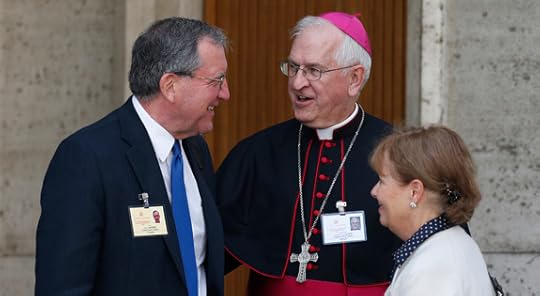
Archbishop Joseph E. Kurtz of Louisville, Ky., president of the U.S. Conference of Catholic Bishops, talks with Jeff and Alice Heinzen of Menomonie, Wis., as they leave the morning session of the extraordinary Synod of Bishops on the family at the Vatican Oct. 13. The couple were auditors at the synod. (CNS photo/Paul Haring)
Abp. Kurtz: Synod was “Characterized by Discernment and Unanimity” | Jim Graves | Catholic World Report
The president of the USCCB discusses the synod, the “relatio,” and the work that lies ahead.
Archbishop Joseph Kurtz of Louisville, Kentucky, president of the US Conference of Catholic Bishops, was an active participant in this month’s Extraordinary General Assembly of the Synod of Bishops on the theme “The Pastoral Challenges of the Family in the Context of Evangelization.” The synod’s purpose was to examine challenges to the family today, and ultimately to develop a more effective pastoral approach for the Church in addressing those challenges.
In addition to speaking out in defense of the unborn, Archbishop Kurtz has been a vocal supporter of the traditional family against legal recognition of same-sex marriage. During the two-week-long synod, he also received media attention, giving interviews as well as participating in an English-language briefing for reporters.
He recently spoke with CWR.
CWR: When the synod’s mid-term document (the “Relatio”) was released, many faithful Catholics were concerned that some in Church leadership were trying to change Church teaching in regards to homosexuality and same-sex marriage. What reassurance would you offer to those who had such concerns?
Archbishop Joseph Kurtz: I take the Holy Father at his word that this synod process is not taking on doctrine, but reaching out in creative and pastoral ways to families where they are at to help them. We want to do this while proclaiming our time-honored teachings of our Church.
I think in the end, the [final] synod document was well-grounded in theology and Scripture. We look forward now to the very fruitful period between now and the synod next October.
CWR: You said in your press briefing that the [mid-term] relatio needed clarification. What did you personally believe was wrong with this document?
October 23, 2014
Pope emeritus Benedict XVI: Dialogue cannot substitute for mission

Retired Pope Benedict XVI arrives for the beatification Mass of Blessed Paul VI celebrated by Pope Francis in St. Peter's Square at the Vatican Oct. 19. To the right is Archbishop Georg Ganswein, prefect of the papal household and the personal secretary to Benedict. (CNS photo/Paul Haring)
Pope emeritus Benedict XVI: Dialogue cannot substitute for mission | Carl E. Olson | CWR blog
The proclamation of Jesus Christ, says the retired pontiff, is not about numbers or power, but the transmission of "that joy which has been given to us."
Francis X. Rocca of CNS has a report for CNS on a speech by Benedict XVI, delivered on October 21st to faculty and students of Pontifical Urbanian University in Rome; the address was read by Archbishop Georg Ganswein, who is prefect of the papal household and the personal secretary to Benedict. Rocca reports some of the address, which doesn't appear to be available online in its entirety:
"The risen Lord instructed his apostles, and through them his disciples in all ages, to take his word to the ends of the earth and to make disciples of all people," retired Pope Benedict wrote. "'But does that still apply?' many inside and outside the church ask themselves today. 'Is mission still something for today? Would it not be more appropriate to meet in dialogue among religions and serve together the cause of world peace?' The counter-question is: 'Can dialogue substitute for mission?'
"In fact, many today think religions should respect each other and, in their dialogue, become a common force for peace. According to this way of thinking, it is usually taken for granted that different religions are variants of one and the same reality," the retired pope wrote. "The question of truth, that which originally motivated Christians more than any other, is here put inside parentheses. It is assumed that the authentic truth about God is in the last analysis unreachable and that at best one can represent the ineffable with a variety of symbols. This renunciation of truth seems realistic and useful for peace among religions in the world.
"It is nevertheless lethal to faith. In fact, faith loses its binding character and its seriousness, everything is reduced to interchangeable symbols, capable of referring only distantly to the inaccessible mystery of the divine," he wrote.
The address emphasized that the proclamation of Jesus Christ is not about gaining "as many members as possible for our community, and still less in order to gain power. ... We speak of him because we feel the duty to transmit that joy which has been given to us."
This appears to echo many of the thoughts expressed by Benedict on April 17, 2008, at the U.N., during his Apostolic Journey to the United States:
I have noticed a growing interest among governments to sponsor programs intended to promote interreligious and intercultural dialogue. These are praiseworthy initiatives. At the same time, religious freedom, interreligious dialogue and faith-based education aim at something more than a consensus regarding ways to implement practical strategies for advancing peace. The broader purpose of dialogue is to discover the truth. What is the origin and destiny of mankind? What are good and evil? What awaits us at the end of our earthly existence? Only by addressing these deeper questions can we build a solid basis for the peace and security of the human family, for “wherever and whenever men and women are enlightened by the splendor of truth, they naturally set out on the path of peace” (Message for the 2006 World Day of Peace, 3).
We are living in an age when these questions are too often marginalized. Yet they can never be erased from the human heart. Throughout history, men and women have striven to articulate their restlessness with this passing world. In the Judeo-Christian tradition, the Psalms are full of such expressions: “My spirit is overwhelmed within me” (Ps 143:4; cf. Ps 6:6; 31:10; 32:3; 38:8; 77:3); “why are you cast down, my soul, why groan within me?” (Ps 42:5). The response is always one of faith: “Hope in God, I will praise him still; my Savior and my God” (Ps 42:5, 11; cf. Ps 43:5; 62:5). Spiritual leaders have a special duty, and we might say competence, to place the deeper questions at the forefront of human consciousness, to reawaken mankind to the mystery of human existence, and to make space in a frenetic world for reflection and prayer.
Confronted with these deeper questions concerning the origin and destiny of mankind, Christianity proposes Jesus of Nazareth. He, we believe, is the eternal Logos who became flesh in order to reconcile man to God and reveal the underlying reason of all things. It is he whom we bring to the forum of interreligious dialogue. The ardent desire to follow in his footsteps spurs Christians to open their minds and hearts in dialogue (cf. Lk 10:25-37; Jn 4:7-26).
Read that entire address on the Vatican site.
October 22, 2014
Ignatius Press President Mark Brumley's article on the "Synod Surprise"
From his commentary in the National Catholic Register:
Those expecting big changes in Catholic teaching in the final report of the Extraordinary Synod of Bishops on the Family just encountered the “God of surprises,” to use Pope Francis’ expression. No big changes.
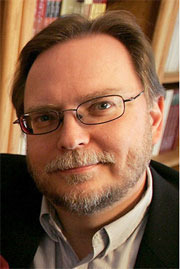
Of course, the interim report surprised people, too. Apparently, someone “adjusted” it to fit a certain approach to issues concerning homosexual persons, civilly remarried Catholics, and Communion and cohabitation. This approach wasn’t generally shared by the synod fathers, despite everyone’s desire to be inclusive and merciful. That made the report a misrepresentation. Surprise.
Media “spun” the story, essentially saying that the Catholic Church had “caved in,” to use George Weigel’s expression. The Church is changing her teaching, they said. The story was wrong. No surprise.
What surprised many was the bishops’ pushback. Many openly criticized the interim report. They began taking more responsibility for their own “messaging.” Even some of the so-called “progressive” voices severely qualified things:
Mercy, inclusivity and respect for human dignity doesn’t mean anything goes, many bishops noted. Human dignity isn’t a blank check to do as we please. Disapproving of certain things doesn’t mean we don’t know that people do other, praiseworthy things. Even bad actions sometimes have positive elements, which don’t, of course, make the bad things good. None of this needs to compromise Catholic teaching. We should praise faithful Catholic families. And so on.
Told by synod leadership that the bishops’ small-group reports wouldn’t be available to the public, the bishops balked. The small-group reports were published.
The final report of the synod aligns with Catholic teaching.
Some observers compared the synod’s discussion to Vatican II. Good comparison. The Roman Curial leadership at the Second Vatican Council wanted the bishops to “rubber stamp” the prepackaged documents. The bishops said, “No.” Similarly, some synod fathers tried to get a “rubber stamp” on a misrepresentative interim report. The bishops said, “No.”
Surprise.
Read the entire piece, "Synod Surprise," at www.NCRegister.com. Also see Brumley's essay, "It's time for the full Gospel of the Family" (Cruxnow.com; Oct 6th).
It's Time to Discover and Rediscover the Teachings of St. John Paul II
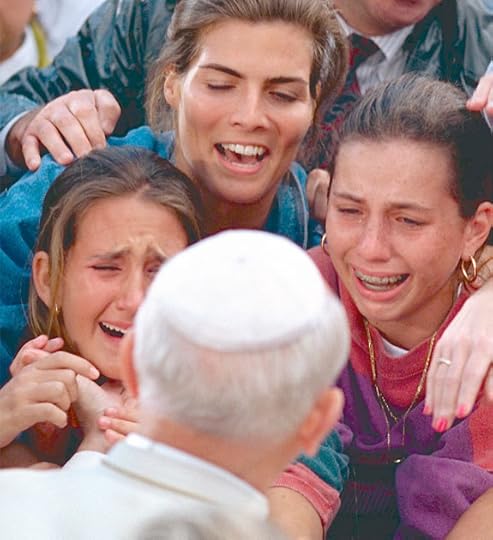
Three young women greet Pope John Paul II at World Youth Day in Denver in 1993. (CNS photo/Joe Rimkus Jr.)
It's Time to Discover and Rediscover the Teachings of St. John Paul II | Bill Maguire | CWR
No one comes even close to John Paul II in capturing the hearts and minds of young people with the beauty of the Church’s teaching on marriage and family
As we celebrate St. John Paul II’s first official feast day, it strikes me that a extraordinary thing about the extraordinary Synod on the Family was the near absence of any reference to the teaching of the man that Pope Francis declared to be the “Pope of the Family.” What might we extrapolate from this rather extraordinary oversight? Perhaps at next year’s Ordinary Synod on the Family — in the middle of which, we will celebrate his second feast day — the silence will be lifted.
Having worked in youth and young adult ministry for almost two decades, I am certain about this: no one comes even close to John Paul II in capturing the hearts and minds of young people with the beauty of the Church’s teaching on marriage and family. And no one inspires them with more enthusiasm to embrace and evangelize their peers with the Church’s teaching on chastity and the dignity of the human person.
No one!
This has been confirmed by my own experiences working with young people and many others who work with young people. All major youth and young adult conferences — e.g., Steubenville summer conferences, FOCUS conferences, the National Catholic Youth Conference, Theology on Tap programs — include at least one talk inspired by the Theology of the Body (TOB), many include several. Most successful youth groups and young adult ministries include TOB and Love and Responsibility as part of their curriculum.
It is the JPII Generation and those educated by them who are on the frontlines of youth and young adult ministry, battling for the Church’s teaching on marriage, family, chastity and pro-life issues. In fact, it is not an overstatement to say that everyone who fully embraces the Church’s teaching on these issues and is passionate about helping young people to embrace them considers John Paul II their go-to guy.
Further, he is not only their best resource, he is frequently cited as the most influential figure who inspired them to take up this kind of work in the first place. This includes, in a special way, the dynamically-orthodox young priests and young people who have answered the call to enter religious life in vibrant religious communities.
I offer here a brief reflection on just one concept of TOB that is particularly effective in piercing through the darkness of the culture of death that utterly surrounds—and threatens to engulf—our young people: Original Nakedness.
Celebrate the first feast day of Saint John Paul II with Ignatius Press!
Celebrate the feast day of Saint John Paul II with Ignatius Press!
View this email in your browser

In honor of the first feast day celebrating Saint John Paul II,
Ignatius Press is offering 20%* off the inspiring titles below on Saint John Paul II's life, legacy, teachings and devotion to Divine Mercy.
Simply enter the code SAINTJP* at checkout to save today!
*This offer is valid online only from October 22, 2014 until October 29, 2014 midnight EST.
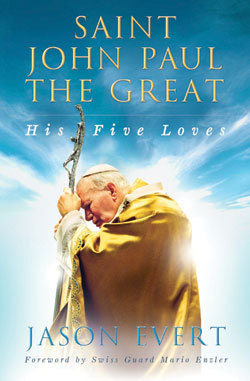
Saint John Paul the Great
His Five Loves
Jason Evert
Hardcover, 300 pages
Discover the five great loves of St. John Paul II through remarkable unpublished stories on him from bishops, priests, students, Swiss Guards, and others.
$21.95

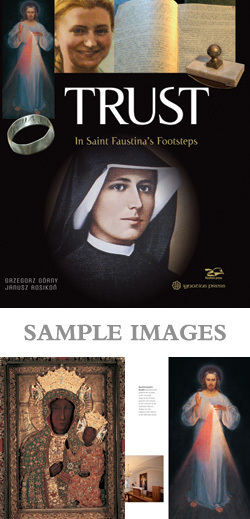
Trust
In Saint Faustina's Footsteps
Grzegorz Górny and Janusz Rosikon
Hardcover, 290 pages
This is a story about Saint Faustina and her devotion to the Divine Mercy, which has become the fastest spreading religious devotion in the world.
This lavishly illustrated book is essentially a love story about God’s immense love for his people and the reciprocation of this love by the humble Polish nun declared a saint by Pope John Paul II.
$29.95

Spanish edition also available.
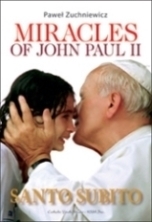
Miracles of John Paul II
Pawel Zuchniewicz
$17.00
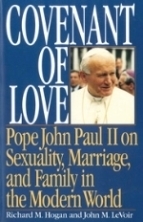
Covenant of Love
Fr. Richard Hogan and
Bishop John M. Levoir
$16.95
eBook also available.
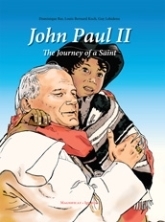
John Paul II
The Journey of a Saint
Dominique Bar, Louis-Bernard Koch, and Guy Lehideux
$16.99
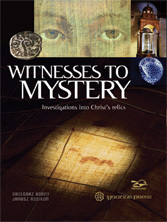
Witnesses to Mystery
Grzegorz Górny
and Janusz Rosikon
$34.95
Spanish edition also available.
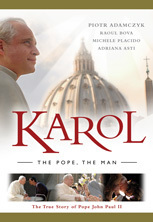
Karol
The Pope, the Man
DVD
$19.95
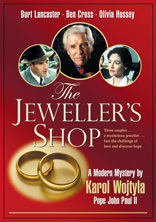
The Jeweller's Shop
DVD
$19.95
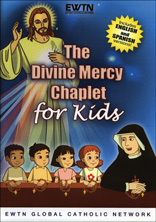
The Divine Mercy Chaplet for Kids
DVD
$9.95
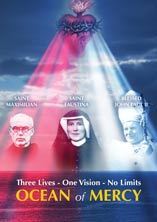
Ocean of Mercy
DVD
$19.95
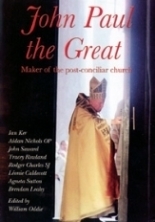
John Paul the Great
Ian Ker
$16.95
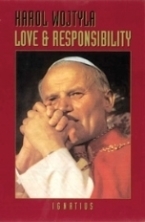
Love and Responsibility
Karol Wojtyla
$18.95
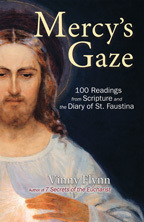
Mercy's Gaze
Vinny Flynn
$14.95
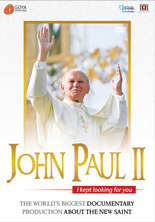
John Paul II:
I Kept Looking for You
DVD
$19.95
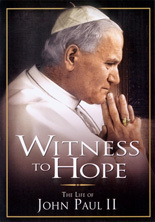
Witness to Hope
DVD
$19.95
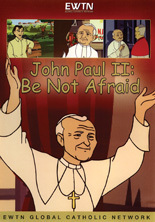
John Paul II
Be Not Afraid
DVD
$14.95
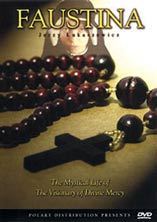
Faustina
DVD
$19.95
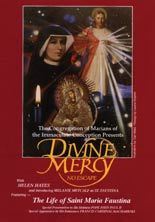
Divine Mercy: No Escape
DVD
$14.95
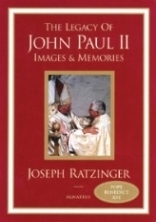
The Legacy of John Paul II
Images and Memories
Joseph Cardinal Ratzinger
$14.95 $6.00
eBook also available.
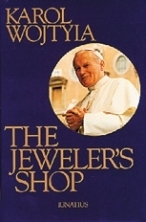
The Jeweler's Shop
Karol Wojtyla
$14.95
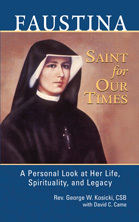
Faustina
A Saint for Our Times
Fr George Kosicki
$14.95
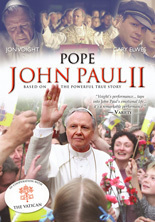
Pope John Paul II
DVD
$19.95
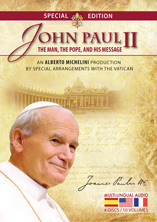
John Paul II
The Man, The Pope,
and His Message
DVD
$39.95
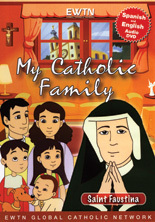
Saint Faustina
My Catholic Family
DVD
$14.95
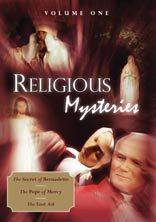
Religious Mysteries
Volume One
DVD
$19.95
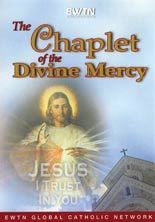
The Chaplet
of Divine Mercy
DVD
$9.95



Website


YouTube
Copyright © 2014 Ignatius Press, All rights reserved.

Share

Tweet

Forward
John Paul II and the Death of the Faith

A Swiss Guard stands in front of a painting of St. John Paul II as Pope Francis leads his general audience in St. Peter's Square at the Vatican Oct. 22. (CNS photo/Paul Haring)
John Paul II and the Death of the Faith | K. V. Turley | CWR blog
The "wisdom" of the second half of the 20th century answered by the wisdom of a sainted pope, an American friar, and a British genius
“Heaven and earth shall pass away, but my words shall not pass away.”
It will not survive; it will die.
That was the view of the Faith when I was younger. Now, over 40 years later, I can only but agree: it will die.
Growing up in the 1970s, the pervasive view was that religion was an embarrassment, a throwback to an age of superstition whilst all around the white heat of technological progress burned ever brighter. The then Pope, Paul VI, old and frail, appeared to have all but “lost” to the so-called Sexual Revolution that seemed to permeate everything—or so we were told by the media, leaving us with the feeling that everyone, save a few Catholics, had moved on from religion. It was to be a different era now; we were moving into a future that promised to be as contrasting as it was to be momentous, and with the certainty that there was no room for Catholicism.
Television domininated the 1970s, and it had a monopoly on our young minds; the secular agenda set by television shaped our worldview, forming one with no relationship whatsoever with the teachings of the Church. Like most of my contemporaries, we lapped up any televised cant (as long as it sounded plausible), from “experts” and the favored intellectuals of the day, believing, as we did, that such men knew “something” about “everything”. And, all the time, joined in this communal mind control, there were those around us decrying Catholic education's wholesale “brainwashing”. Looking back now, the assertion seems utterly preposterous, especially given the fact that many of those attending and teaching in such schools either misunderstood the Church's teachings or already rejected them outright.
It was clear this state of affairs couldn't continue. The Faith just couldn't survive, and not only in the British Isles, but all across the West. Nevertheless, as an adolescent, I wondered where it was all going to end; that said, one thing was patently clear: the Faith would die.
“Heaven and earth shall pass away, but my words shall not pass away.”
Fast forward some 30 years to November 2006.
John Paul II and The Blessed Sacrament
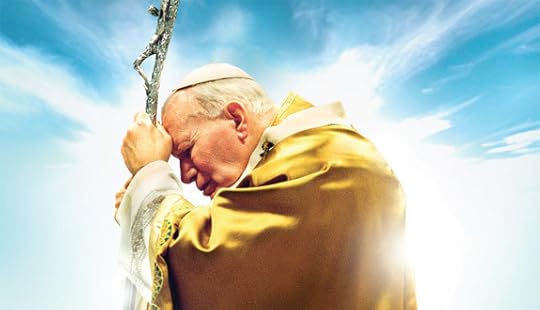
John Paul II and The Blessed Sacrament | Jason Evert | CWR
The late pontiff's sixty to ninety minutes of private prayer before Mass were the best part of his day
The following is Chapter 9, "The Blessed Sacrament", from Jason Evert's new book, Saint John Paul the Great: His Five Loves.
Between 5:00 and 5:30 a.m.—and sometimes as early as 4:00—Pope John Paul II would arise each morning, keeping virtually the same schedule he had as the bishop of Kraków. Although he enjoyed watching the sunrise, the main reason for his early start was to make time for prayer. He prayed the Rosary prostrate on the floor or kneeling, followed by his personal prayers, and would then go to the chapel in order to prepare for 7:30 Mass. According to his press secretary, Joaquín Navarro-Valls, his sixty to ninety minutes of private prayer before Mass were the best part of his day.
At the chapel, he would kneel before the Blessed Sacrament at his prie-dieu. The top of his wooden kneeler could be opened, and it was brimming with notes people had given to him, seeking his prayers for all kinds of petitions, including healings, the conversion of family members, or successful pregnancies. Perhaps thirty to forty new petitions were given to him each day, and he would pray specifically over every one. He said that they were kept there and were always present "in my consciousness, even if they cannot be literally repeated every day."
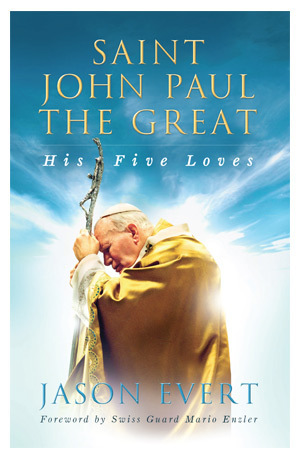
He told one of his biographers, "There was a time when I thought that one had to limit the ‘prayer of petition.’ That time has passed. The further I advance along the road mapped out for me by Providence, the more I feel the need to have recourse to this kind of prayer." Quite often, those who sent the petitions wrote back in thanksgiving for answered prayers. His assistant secretary noted that most of them expressed gratitude for the gift of parenthood. Not only did he intercede before the tabernacle for these individuals as if they were his most intimate friends, he routinely sought information about the progress of the cases. The liturgy would not begin until he had before him the petitions people had asked him to offer on their behalf.
After going to the sacristy to don his vestments for Mass, he would again kneel or sit for ten to twenty minutes.When visitors arrived to join him for Mass, they would always find him kneeling in prayer. Some said, "he looked like he was speaking with the Invisible." One of the masters of ceremonies added, "it seemed as if the Pope were not present among us." Bishop Andrew Wypych, who was ordained to the diaconate by Cardinal Karol Wojtyła, added, "You could see that he physically was there, but one could sense that he was immersed in the love of the Lord. They were united in talking to each other."
During the celebration of the Eucharist, one observer noticed, "He lingered lovingly over every syllable that recalled the Last Supper as if the words were new to him." Then, after the moment of Consecration, he would genuflect before Christ’s presence on the altar with tremendous reverence. Visitors to his private Masses noticed that you could hear the thud of his knee slamming down upon the marble floor when he became too weak to support himself as he genuflected. After Mass, a lengthy time of thanksgiving followed before the Holy Father greeted guests and gave each of them a Rosary.
The Eucharist was the principal reason for his priesthood. He said, "For me, the Mass constitutes the center of my life and my every day."
New: "The Hobbit Party: The Vision of Freedom That Tolkien Got, and the West Forgot"
Now available from Ignatius Press:
October 21, 2014
The Synod and the Media: Culpable Naïveté or Shrewd Calculation?

Pope Francis attends the morning session of the extraordinary Synod of Bishops on the family at the Vatican Oct. 18. (CNS photo/Paul Haring)
The Synod and the Media: Culpable Naïveté or Shrewd Calculation? | Russell Shaw | CWR
The disastrous mid-term relatio seeded confusion, conflict, and lingering bitterness at every level of the Church. But the synod itself was only Act One.
Upon becoming director of media relations for the American bishops in late 1969, I quickly made a crucial discovery about my new employers. With just a handful of exceptions, the bishops were painfully naïve about the news business, yet convinced they could manipulate the process to get the story told as they wished.
They were wrong of course, and eventually they learned that. But in the interim their attempts at manipulation were a continuing source of confusion, conflict, and embarrassment—to the Church and to themselves.
These ancient memories came to mind as I tried to make sense of the chaotic, not to say catastrophic, communications emanating from the synod on marriage and family. Not to put too fine a point on it, this synod was one of the strangest examples of Church miscommunication in many a year.
Among the howlers were these: an international gathering of more than 200 people whose managers sought to conduct it in semi-secrecy after an intense and deliberate media buildup; a meeting supposedly operating on collegial principles at which a document dealing with highly sensitive matters (the now famous relatio) was released with fanfare but without being reviewed and approved by the bishops whose views it claimed to reflect, thereby evoking angry pushback; coy, unresponsive answers by leading churchmen to reporters’ questions during a critically important news conference.
And on and on and on.
In the end, the Synod Fathers papered over their differences with a closing document from which the relatio’s most inflammatory elements were eliminated. This was accompanied by soothing talk from Pope Francis, followed by standing applause for the Pope. Just a big happy family, it seemed. Except that it wasn’t.
There are two possible ways of explaining all this.
October 20, 2014
Watch: Fr. Robert Dodaro interviewed on EWTN about Kasper proposal, "Remaining In the Truth of Christ"
Fr. Robert Dodaro, O.S.A, editor of Remaining in the Truth of Christ: Marriage and Communion in the Catholic Church, is interviewed on "The World Over" (EWTN) by Raymond Arroyo:
More about the book:
Remaining in the Truth of Christ: Marriage and Communion in the Catholic Church
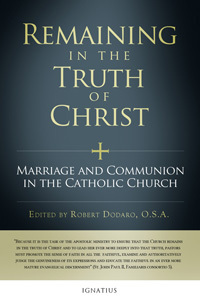
Edited by Robert Dodaro, O.S.A
• Also available in Electronic Book Format
In this volume five cardinals of the Church, and four other scholars, respond to the call issued by Walter Cardinal Kasper for the Church to harmonize "fidelity and mercy in its pastoral practice with civilly remarried, divorced people". The contributors are Walter Cardinal Brandmüller; Raymond Cardinal Burke; Carlo Cardinal Caffarra; Velasio Cardinal De Paolis, C.S.; Robert Dodaro, O.S.A.; Paul Mankowski, S.J.; Gerhard Cardinal Müller; John M. Rist; and Archbishop Cyril Vasil', S.J.
Cardinal Kasper appeals to early Church practice in order to support his view. The contributors bring their wealth of knowledge and expertise to bear upon this question, concluding that the Bible and the Church Fathers do not support the kind of "toleration" of civil marriages following divorce advocated by Cardinal Kasper. They also examine the Eastern Orthodox practice of oikonomia (understood as "mercy" implying "toleration") in cases of remarriage after divorce and in the context of the vexed question of Eucharistic Communion. The book traces the long history of Catholic resistance to this practice, revealing the serious theological and pastoral difficulties it poses in past and current Orthodox Church practice.
As the authors demonstrate, traditional Catholic doctrine, based on the teaching of Jesus himself, and current pastoral practice are not at odds with genuine mercy and compassion. The authentic "gospel of mercy" is available through a closer examination of the Church's teachings.
"Because it is the task of the apostolic ministry to ensure that the Church remains in the truth of Christ and to lead her ever more deeply into that truth, pastors must promote the sense of faith in all the faithful, examine and authoritatively judge the genuineness of its expressions and educate the faithful in an ever more mature evangelical discernment."
- St. John Paul II, Familiaris Consortio
Carl E. Olson's Blog
- Carl E. Olson's profile
- 20 followers



